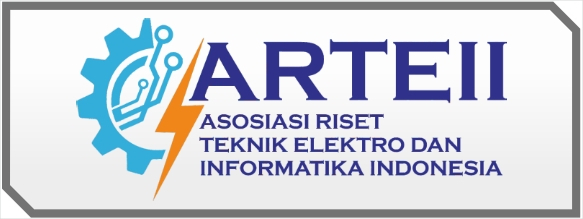Perancangan Expert System untuk Menentukan Lokasi PPL pada Program Pendidikan Teknik Informatika dan Komputer UIN Sjech M.Djamil Djambek Bukitinggi
DOI:
https://doi.org/10.55606/juitik.v5i3.1595Keywords:
Expert System, Field Experience Practice, Fuzzy Logic, Location Determination, WaterfallAbstract
The Field Experience Practice (PPL) is a key component of the Information Technology and Computer Education program at UIN SMDD BKT, designed to provide students with direct teaching experience and opportunities to apply classroom knowledge in real contexts. However, assigning suitable PPL locations can be challenging as various factors must be considered to match student abilities and conditions. This study develops an expert system using the Sugeno-type Fuzzy Logic method to assist in determining PPL placements objectively. The system evaluates four main indicators: students’ residence, microteaching scores, religious scores, and practice scores. After development, the system underwent validity, practicality, and effectiveness testing. The results showed a validity score of 0.9, indicating very high reliability; a practicality score of 0.78, showing ease of use; and an effectiveness score of 0.76, confirming the system’s ability to support decision-making in PPL placement. These findings demonstrate that the expert system is valid, practical, and effective, making it a reliable tool for assigning students to appropriate teaching locations. Consequently, the system is expected to enhance the efficiency and accuracy of the placement process by ensuring that students are positioned in environments aligned with the established criteria.
References
Abdul Rahmat, D. (2012). Pengantar pendidikan: Teori, konsep, dan aplikasi (Vol. 1).
Efriyanti, L., Syamsurizal, S., Afja, O. D., & Devi, I. (2023). Designing an OBE-based learning model using fuzzy logic at the UIN Bukittinggi postgraduate program. BiCED Proceeding, 1.
Efriyanti, L. (2024a). Meningkatkan efektivitas penulisan ilmiah dengan pendampingan aplikasi artificial intelligence (AI) untuk guru di Baso Kabupaten Agam Sumatera Barat. Jurnal Pengabdian Masyarakat, 2. https://doi.org/10.34152/abdimas.3.1.36-41
Efriyanti, L. (2024b). Penerapan artificial intelligence dalam penentuan model pembelajaran pendidikan agama Islam (PAI) di perguruan tinggi. Procedia of Social Sciences and Humanities International Symposium on the Interplay of Science, Technology, and Socio-Economic Development.
Fachri, B., & Surbakti, R. W. (2021). Perancangan sistem dan desain undangan digital menggunakan metode waterfall berbasis website (studi kasus: Asco Jaya). Journal of Science and Social Research. https://doi.org/10.54314/jssr.v4i3.692
Fayek, A. R. (2020). Fuzzy logic and fuzzy hybrid techniques for construction engineering and management. Journal of Construction Engineering and Management. https://doi.org/10.1061/(ASCE)CO.1943-7862.0001854
Gitnita, S., & Kamus, Z. (2018). Analisis validitas, praktikalitas, dan efektivitas pengembangan bahan ajar terintegrasi konten kecerdasan spiritual pada materi fisika tentang vektor dan gerak lurus. Pillar of Physics Education, 11.
Gustiar, Zakir, S., Aprison, W., & Sesmiarni, Z. (2022). Perancangan absensi siswa berbasis web menggunakan PHP MySQL di SMA Negeri 1 Palupuh. International Journal of Learning and Technological Innovation, 1. https://doi.org/10.57255/intellect.v1i1.52
Hindarto, Sumarno, & Rosid, M. A. (2022). Buku ajar kecerdasan buatan/Artificial Intelligence (AI) (1st ed.). Jawa Timur: UMSIDA Press. https://doi.org/10.21070/2022/978-623-464-034-2
Munir, Y. (2018). Pengantar ilmu pendidikan (1st ed.). Palopo: Kampus IAIN Palopo.
Saravanos, A., & Curinga, M. X. (2023). Simulating the software development lifecycle: The waterfall model. Applied System Innovation. https://doi.org/10.3390/asi6060108
Sari, C., Efriyanti, L., & Derta, S. (2022). Pengaruh model pembelajaran rotation model pada mata kuliah model dan simulasi terhadap hasil belajar mahasiswa. Jurnal Pendidikan dan Konseling, 4.
Setiyanto, R., Nurmaesah, N., & R. A. S. (2019). Perancangan sistem informasi persediaan barang (studi kasus di Vahncollections). Jurnal Sisfotek Global, 9. https://doi.org/10.38101/sisfotek.v9i1.267
Sharma, S., & Obaid, A. J. (2020). Mathematical modelling, analysis and design of fuzzy logic controller for the control of ventilation systems using MATLAB fuzzy logic toolbox. Journal of Interdisciplinary Mathematics. https://doi.org/10.1080/09720502.2020.1727611
Yusuf, M. (2018). Pengantar ilmu pendidikan (1st ed.). Palopo: Kampus IAIN Palopo.
Zadeh, L. A. (2023). Fuzzy logic. In Granular, fuzzy, and soft computing. Springer. Retrieved from http://www.scholarpedia.org/article/Fuzzy_Login
Downloads
Published
How to Cite
Issue
Section
License
Copyright (c) 2025 Jurnal Ilmiah Teknik Informatika dan Komunikasi

This work is licensed under a Creative Commons Attribution-ShareAlike 4.0 International License.


















